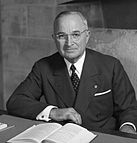User:Allard
Hello and a warm welcome to all my fellow Wikipedians. How nice of you to drop in to see who I am!
Morning>
Wikipedia & me:
[edit]How I discovered Wikipedia, I do not remember. But from being a reader I slowly became a contributor. Although I don't work that much on Wikipedia I do see myself as a Wikipedian. I don't go searching on Wikipedia what I can edit next, I edit what I find and want to do. This means I add and mainly improve a lot of small things and only rarely I make large edits.
My work:
[edit]Articles I've started on Wikipedia:
- Fort Knox Bullion Depository
- Animals are Beautiful People
- Template:David Attenborough Television Series
- Template:Malta Islands
Images I made for Wikipedia:
 Dutch lower house as from 2006
Dutch lower house as from 2006 New image of the Netherlands Air Force Roundel
New image of the Netherlands Air Force RoundelMap on membership of the League of Nations
United Nations membership map
 Improved image of the British Helgoland flag
Improved image of the British Helgoland flag New image showing the current flag of Hel(i)goland
New image showing the current flag of Hel(i)goland
Article guide:
[edit]A list of articles worth looking at, if one can find them:
- Antidisestablishmentarianism
- Ball's Pyramid
- British Isles (terminology)
- Eadweard Muybridge
- Gunpowder Plot
- Horace de Vere Cole
- Humphrey (cat)
- Islomania
- List of countries by date of nationhood
- List of flags
- List of people who died on their birthdays
- List of regnal numerals of future British monarchs
- List of unusual deaths
- Northwest Angle
- Quadripoint
- Racetrack Playa
- Rule of tincture
- San Gimignano
- Transcontinental country
- Undivided India & Partition of India
- Voyager Golden Record
- Web colors
- Winchester Mystery House
And there's always the Random article
And to all citizens of the European Union, please read this: Oneseat.eu
News
[edit]- Romania and Bulgaria become full members of the Schengen Area.
- In New Orleans, an attacker rams a truck into a crowd and opens fire, killing at least 14 people and injuring 35 others.
- Mikheil Kavelashvili is inaugurated as president of Georgia while incumbent Salome Zourabichvili (pictured) intends to remain in office amidst a constitutional crisis.
Selected anniversaries
[edit]January 5: Twelfth Night (Western Christianity)
- 1757 – King Louis XV survived an assassination attempt by Robert-François Damiens, who later became the last person in France to be executed by drawing and quartering.
- 1869 – Te Kooti's War: After surviving a five-day siege in the pā at Ngātapa, Māori leader Te Kooti escaped from New Zealand's Armed Constabulary.
- 1919 – The German Workers' Party, the precursor of the Nazi Party, was founded by Anton Drexler.
- 1949 – In his State of the Union speech, U.S. president Harry S. Truman (pictured) announced: "Every segment of our population, and every individual, has a right to expect from his government a fair deal."
- 2003 – The Metropolitan Police arrested six people in conjunction with an alleged terrorist plot to release ricin on the London Underground, although no toxin was found.
- al-Mu'tasim (d. 842)
- Joseph Erlanger (b. 1874)
- Edmund Herring (d. 1982)
- Pierre Boulez (d. 2016)
Did you know...
[edit]- ... that the city of Saint Paul, Minnesota, was named after a log chapel (pictured)?
- ... that the death of Odysseus's dog in the Odyssey uses language typically reserved for the noble deaths of warriors?
- ... that when future Olympian Chang Wei-chia entered high school, her elementary-school swimming coach was hired full-time and continued to coach her?
- ... that Babak Ganjei tried to sell a painting of his credit card to Barclays?
- ... that An Amorous History of the Silver Screen has been read as a biographic metafilm, paralleling its lead's rise from prostitution into film stardom?
- ... that the first publication of the prolific author and Talmudic scholar Israel Ta-Shma was a Jewish songbook for the Israel Defense Forces?
- ... that Sarah Pickstone based her John Moores Prize–winning painting on an illustration that accompanied the poem "Not Waving but Drowning"?
- ... that Frank Ocean's song "American Wedding" was pulled from streaming platforms because of its unauthorized use of "Hotel California"?
- ... that after being signed, released, signed, released, signed, released, signed, released, signed, released, and signed again, Brandon Smith made his NFL debut?
Today's featured article
[edit]Cyfeilliog (died c. 927) was a bishop in south-east Wales. The location and extent of his diocese is uncertain, but lands granted to him are mainly close to Caerwent, suggesting that his diocese covered Gwent, possibly extending into Ergyng (now south-west Herefordshire). He is recorded in charters dating from the mid-880s to the early tenth century. In 914 he was captured by the Vikings and ransomed by Edward the Elder, King of the Anglo-Saxons, for 40 pounds of silver. Edward's assistance is regarded by historians as evidence that he inherited the overlordship of his father, Alfred the Great, over the south-east Welsh kingdoms. Cyfeilliog is probably the author of a cryptogram (encrypted text) which was added as a marginal note to the ninth-century collection of poetry known as the Juvencus Manuscript. The twelfth-century Book of Llandaff records his death in 927, but some historians are sceptical as they think that this date is late for a bishop active in the 880s. (Full article...)










